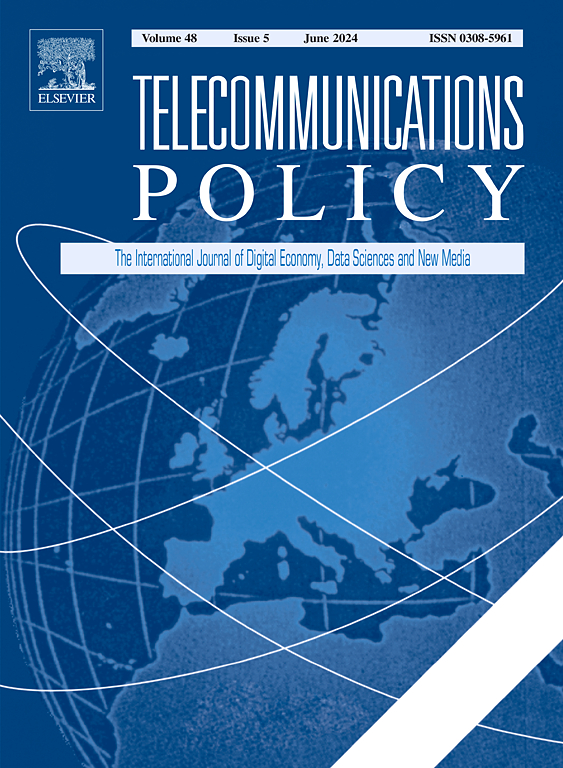Perspectives on political influences on changes in telecommunications and internet economy markets
IF 6.4
2区 管理学
Q1 COMMUNICATION
引用次数: 0
Abstract
For the past thirty years, international consensus has supported telecommunications policies favoring the pursuit of economic efficiency and the distancing of governments from ownership and day-to-day industry governance. These principles serve to minimize the potential for conflicts of interest and corruption to influence industry outcomes. However, recently, a trend has emerged for governments to expand their sector influence more directly, via network ownership, extension of regulatory interests into all aspects of the digital economy, the politicization of matters such as payment for internet content and content censorship and at the extreme, prohibitions on the use of equipment and software originating from non-favored countries. This begs two questions. Is this populist politicization of telecommunications and internet economy matters a worldwide phenomenon, or is it confined to a handful of developed countries? And even though the rhetoric may flow at election-time, do these potentially-flawed populist policies flow through into problematic laws and actions, or are there other checks and balances that constrain these excesses and ensure that the long-standing economic and social objectives governing the industry for the past thirty years are preserved in national laws and regulations?
The international perspective appears to confirm both the persistence of regulation and its ability to expand into all areas of the digital economy, and a disconnection of regulation from the original intentions to promote more competitive markets. We review the current state of sectoral regulation and thinking, including a juxtaposition of the EU and US approaches, concluding with a proposed research agenda.
政治对电信和互联网经济市场变化的影响
在过去的三十年里,国际共识支持有利于追求经济效率和政府远离所有权和日常行业治理的电信政策。这些原则有助于最大限度地减少利益冲突和腐败影响行业成果的可能性。然而,最近出现了一种趋势,即政府通过网络所有权、将监管利益扩展到数字经济的各个方面、将互联网内容付费和内容审查等问题政治化,以及在极端情况下禁止使用来自非受惠国的设备和软件,更直接地扩大其部门影响力。这引出了两个问题。电信和互联网经济问题的民粹主义政治化是一种全球现象,还是仅局限于少数发达国家?即使这些言论可能会在选举期间出现,这些潜在缺陷的民粹主义政策是否会流入有问题的法律和行动中,或者是否有其他制衡措施来限制这些过度行为,并确保过去三十年来管理该行业的长期经济和社会目标在国家法律和法规中得到保护?国际视角似乎证实了监管的持久性及其扩展到数字经济所有领域的能力,以及监管与促进更有竞争力的市场的初衷脱节。我们回顾了部门监管和思维的现状,包括欧盟和美国方法的并列,最后提出了一个拟议的研究议程。
本文章由计算机程序翻译,如有差异,请以英文原文为准。
求助全文
约1分钟内获得全文
求助全文
来源期刊

Telecommunications Policy
工程技术-电信学
CiteScore
10.80
自引率
12.50%
发文量
122
审稿时长
38 days
期刊介绍:
Telecommunications Policy is concerned with the impact of digitalization in the economy and society. The journal is multidisciplinary, encompassing conceptual, theoretical and empirical studies, quantitative as well as qualitative. The scope includes policy, regulation, and governance; big data, artificial intelligence and data science; new and traditional sectors encompassing new media and the platform economy; management, entrepreneurship, innovation and use. Contributions may explore these topics at national, regional and international levels, including issues confronting both developed and developing countries. The papers accepted by the journal meet high standards of analytical rigor and policy relevance.
 求助内容:
求助内容: 应助结果提醒方式:
应助结果提醒方式:


